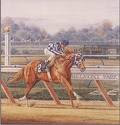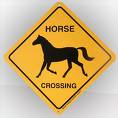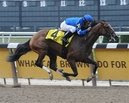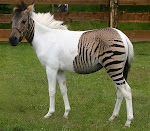
A federal judge presiding over the antitrust lawsuit filed by Churchill Downs Inc. against horsemen’s groups basically said Feb. 19 he has his work cut out for him in trying to resolve the complex issues involved in the case.
United States District Judge John G. Heyburn II said he feels many of the dynamics being argued in CDI’s case against the Thoroughbred Horsemen’s Group and the Kentucky Horsemen’s Benevolent and Protective Association are without clear-cut legal precedent.
“It’s a very tough issue,” Heyburn said near the close of a four-hour hearing held in a courtroom located in Louisville at the U.S. District Court Western District of Kentucky. “There is no (precedent) case out there that exactly says what to do. This is not a classic antitrust case, because of the intrusion of the (Interstate Horseracing Act).
“It throws a monkey-wrench into all of it,” he said of the IHA, a unique federal law which regulates interstate pari-mutuel wagering. “There is an argument for both sides, and I guess I need to figure out what the reality is.”
Respective attorneys during the hearing argued their clients’ “realities” about the lawsuit, which sprang from the high-profile dispute in 2008 over revenue shares from bets made through advance deposit wagering outlets.
The Kentucky HBPA and a since-dismissed defendant, the Kentucky Thoroughbred Association, last April withheld their IHA-authorized consent to allow the signal for Churchill Downs racetrack to go out to certain ADWs unless those wagering outlets signed a new licensing agreement advocated by the THG. Other signals were separately shut off by horsemen at such tracks as Calder Race Course, Lone Star Park, and Presque Isle Downs, among others, and the resulting standoff hit both sides of the warring parties with lower handle and purses.
CDI and affiliated entities filed the antitrust lawsuit in May 2008, claiming, in part, that the collective hand-off to THG as a negotiating agent was in violation of the federal Sherman Act. Accusations of price-fixing and collusion, which are prohibited by the Sherman Act, were leveled against the horsemen, and repeated at the hearing.
“The federal penitentiaries are filled with ‘agents’ who have represented groups in violation of the antitrust laws,” said David M. Schiffman, a Chicago attorney representing the CDI plaintiffs. “The THG is the ringleader of the conspiracy.”
Schiffman argued that the collective development of the revenue-sharing model advocated by the THG, which basically asks for a one-third share of the takeout from ADW wagers, was in clear violation of antitrust laws, as was the "boycotts" that followed.
“If they can get a higher price acting collectively than individually, then that is classic price-fixing,” he said.
On the other side, attorneys for the THG and Kentucky HBPA argued, among many things, that horsemen’s groups have operated within rights granted to them by the IHA, including immunity protection from the antitrust allegations leveled by the plaintiffs.
.









































































